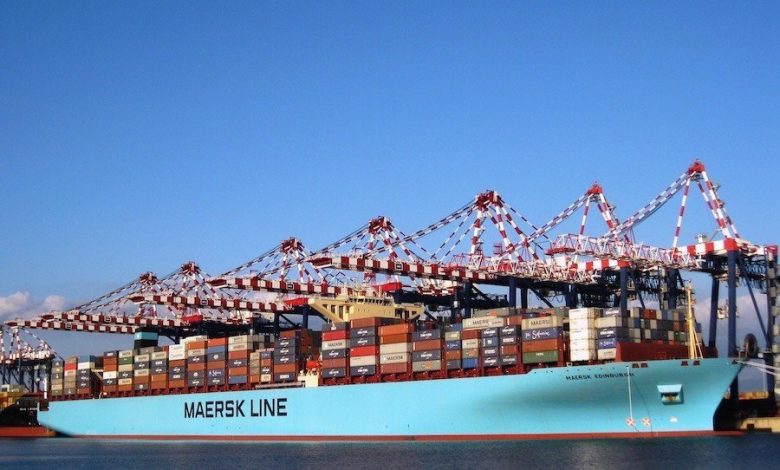Blockchain: a transitional and transformational technology for shipping

Chief correspondent Jason Jiang follows up on the recent news that Maersk and IBM are collaborating to bring blockchain technology into everyday shipping operations. Just what is this tech, and how can it be adapted?
The word blockchain has been in the shipping news a great deal of late especially following Danish shipping conglomerate Maersk’s new partnership with IT giant IBM to jointly develop blockchain for box shipping.
Maersk will use blockchain to keep track of international shipments. Rather than tracking entire shipments, the company is now narrowing its focus on the individual shipment of containers. At the same time, the companies hope to use blockchain to address the inconvenience of maintaining paperwork for deliverables with short or long trips to their destinations.
So what is blockchain? IBM has described it as a shared, immutable ledger for recording the history of transactions and it fosters a new generation of transactional applications that establish trust, accountability and transparency.
IBM established a blockchain that allows every participant involved to witness the shipment’s progress at any stage. They have a plan to start updating the user on the whereabouts of the container and the status of their goods in late 2017.
“We believe that this new supply chain solution will be a transformative technology, with the potential to completely disrupt and change the way global trade is done,” says Bridget van Kralingen, IBM’s senior vice president.
Jody Cleworth, CEO of UK freight forwarder Marine Transport International reckons blockchain has the ability to empower the shipping industry into a true digital age.
Marine Transport International started to adopt blockchain technology in in its freight forwarding operations from September last year.
“Instead of a VGM (verified gross mass) message being delivered sequentially to parties within the supply chain, our platform can provide a decentralised approach to delivering VGM messages. The sheer volume of containers processed per year means that safely decentralising the management of these containers will radically reduce the complexities of shipping,” Cleworth says.
“A grass roots approach in collecting and storing information on the blockchain is how shippers will be able to reap the full benefits of the technology,” Cleworth adds.
So will blockchain become the game changing technology for the shipping industry?
Two co-founders of Copenhagen-based blockchain solution provider BLOC, which is short for The Blockchain Labs for Open Collaboration, certainly hope so.
“The maritime industry is facing a tough and unpredictable future. Overcapacity, trust issues, decreasing rates and increasing competition from non traditional players and outdated systems will have a fundamental impact on the industry’s long term prospects,” says Deanna MacDonald, co-founder and CEO of BLOC.
MacDonald believes these challenges along with higher demands from society and cargo owners for transparency, traceability and accountability in the logistics chain will drive the industry towards exploring and implementing new solutions like blockchain.
Speaking of the challenges for development of blockchain in shipping, MacDonald reckons one of the biggest challenges has been the lack of clarity and understanding as to what blockchain actually is and this lack of understanding is not limited to the shipping industry.
“On a general level there are technical barriers right now that cause relatively high transaction costs that may act as a hindrance in the short term and also future challenges that must be met to ensure existence of blockchain,” says Maurice Meehan, the other BLOC co-founder.
Meehan used to work with the AP Moller Maersk Group, where he led the development and implementation of sustainability strategy in various business units.
According to Meehan, such barriers include a lack of storage infrastructure, the high carbon footprint associated with it and the fact that there are few blockchain developers and even fewer ‘miners’ that can validate transactions to keep up with demand.
“On the organisation level, due to the fact that blockchain is still in its early stages of development and is rapidly changing, it makes it a difficult technology to concretely assess, pin down and apply just yet because an application that is missing today might be there tomorrow,” Meehan says, adding that the recent announcement from Mærsk and IBM to adopt blockchain has helped clear up much scepticism in trusting the technology.
In MacDonald’s opinion, leapfrogging is likely not an option for the shipping industry to adopt blockchain due to its breadth and complexity, but the firm sees blockchain as both a transitional and a transformational technology that is accessible to companies of all sizes.
“Transitional in that it will contribute to creating a shared commons of digital assets for the shipping industry and transformational in that applications built on top of this shared database will purposefully utilize the digital assets stored to provide more efficient and streamlined processes and new value streams throughout the global shipping industry,” Macdonlad explains.
Meehan reckons it is difficult right now to say what the full potential of blockchain is for the shipping industry, and there are many steps to be undertaken by the industry as a whole before understand its potential, it requires understanding the needs of the industry and the collective problems faced in the global economy, building knowledge and understanding capacity in the field of blockchain and the potential it has for solving these problems, and collaboration and co-creation of the blockchain solutions in order to truly realise the benefits of the technology on an industry-wide scale.
